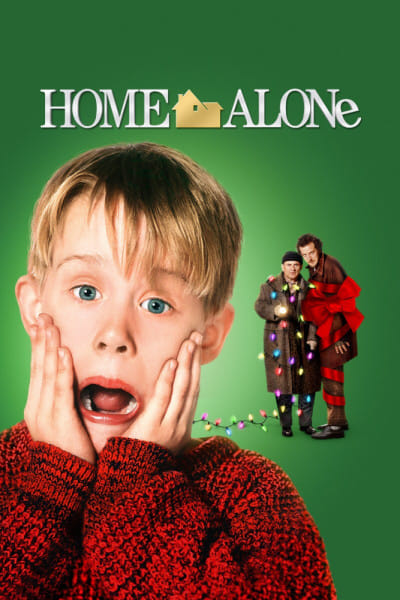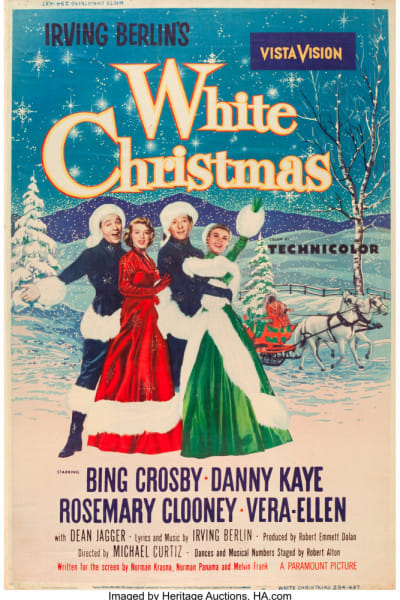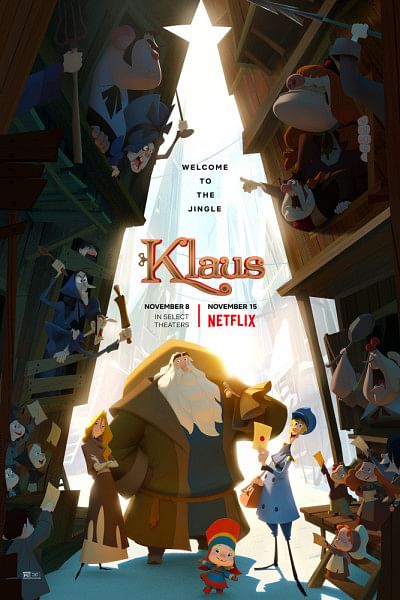The evolution of holiday films: From classics to contemporary gems

The holiday season has always been synonymous with warmth, joy, and the timeless tradition of watching festive films that capture the spirit of the festivities. Over the years, these films have undergone a remarkable evolution, transitioning from timeless classics to contemporary gems. The golden age of holiday films is often associated with timeless classics that have become an integral part of our holiday traditions.

Directed by Frank Capra, "It's a Wonderful Life" (1946) portrays the transformative power of kindness and selflessness as George Bailey discovers the profound impact of his life on others, with the help of a guardian angel. In George Seaton's "Miracle on 34th Street" (1947), the belief in the magic of Christmas and the goodness of people takes centre stage as a man claims to be Santa Claus, prompting a legal battle that sheds light on generosity and open-mindedness.
Finally, "White Christmas" (1954), a Michael Curtiz directorial, uses music and camaraderie to celebrate the holiday season, emphasising themes of friendship, love, and the joy of giving as two former soldiers come together to save a failing inn. These films not only entertained but also instilled values that continue to resonate with audiences of all ages.

In the following years, the animation industry brought a new dimension to holiday storytelling. "Rudolph the Red-Nosed Reindeer" (1964) follows an outcast, Rudolph's journey of self-discovery and acceptance as he embraces his unique qualities. The charming characters and the whimsical animation style contributed to the film's appeal. "A Charlie Brown Christmas" (1965), directed by Bill Melendez, is another animated classic that has become a staple for holiday watchlists. The film centres around the beloved Peanuts characters, with Charlie Brown feeling disheartened by the commercialism of Christmas. As he seeks the true meaning of the holiday, the story unfolds with humour, emotions, and timeless wisdom. These films introduced a younger generation to the magic of the holidays in a visually enchanting way, creating timeless experiences for families to share.

The latter part of the 20th century saw a shift in holiday films with modern twists on traditional themes. "Home Alone", directed by Chris Columbus, revolves around eight-year-old Kevin McCallister, who is accidentally left behind when his family goes on vacation for Christmas. Throughout the series of films, Kevin must defend himself, turning the misery into a comedic and action-packed adventure. Similarly, "The Santa Clause" (1994), directed by John Pasquin, takes a humorous approach to the holiday genre. The protagonist, Scott Calvin, accidentally causes Santa Claus to fall from his roof on Christmas Eve. As a result, he must take on the role of Santa, facing various comedic challenges and misunderstandings. These films introduced a comedic element to the holiday genre, appealing to the audience with their humour and family-centric plots.

In recent years, holiday films have evolved further with a diverse range of narratives that reflect the changing dynamics of society, specifically highlighting the notions regarding Santa. Robert Zemeckis's "The Polar Express" (2004) follows a young boy who embarks on a magical train journey to the North Pole on Christmas Eve. The train is on a mission to pick up Santa and deliver presents to children around the world. Throughout the journey, the protagonist encounters a diverse cast of characters, each with their own beliefs and doubts about the existence of Santa. On a similar note, "Arthur Christmas" (2011), directed by Sarah Smith and Barry Cook, offers an imaginative take on the classic story of Santa Claus.
The film peeks into the high-tech operation at the North Pole, where Santa's delivery of presents on Christmas Eve is a well-orchestrated mission. The story focuses on Arthur, Santa's younger son, who embarks on an adventurous journey to ensure that a misplaced gift reaches its rightful recipient before sunrise. Finally, "Elf" (2003), directed by Jon Favreau, takes a fantastical approach to the holiday genre. The film follows Buddy, a human raised by elves at the North Pole, as he embarks on a journey to New York City to find his real father.

The evolution of holiday films is also marked by a growing emphasis on diversity and inclusion. "Klaus" (2019), directed by Sergio Pablos, offers a unique take on the origin story of Santa Claus. The film introduces viewers to a reimagined version of Santa, exploring the character's early years and the events that led to the creation of the iconic figure. It not only celebrates the magic of Christmas but also weaves in elements that resonate with various cultural traditions. My personal favourite, Gil Kenan's "A Boy Called Christmas" (2021), follows Nikolas, who embarks on an adventure to find his father in the fabled village of the elves, Elfhelm. While the story unfolds in a fictional world inhabited by magical creatures and characters, it draws inspiration from several cultures.
Lastly, "The Christmas Chronicles" (2018), a Clay Kaytis directorial, follows the adventures of two siblings who team up with Santa Claus to save Christmas. By blending contemporary elements with the timeless magic of the holiday season, the film embraces a global perspective, acknowledging the diversity of its audience and the multifaceted nature of holiday traditions.

 For all latest news, follow The Daily Star's Google News channel.
For all latest news, follow The Daily Star's Google News channel. 






Comments